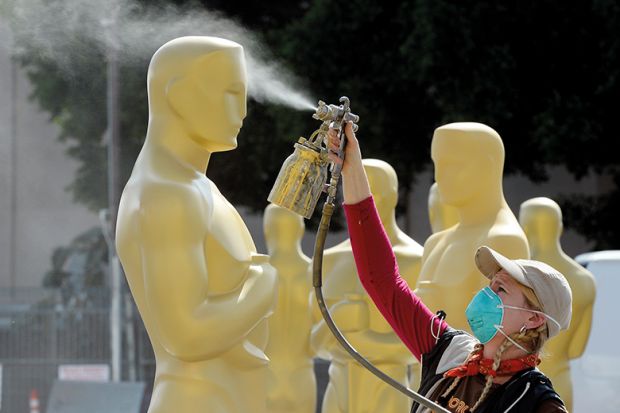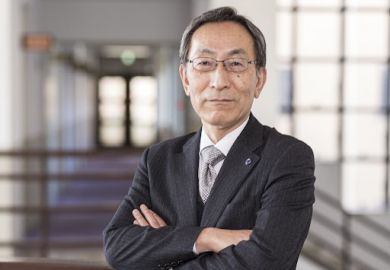The UK’s Engineering and Physical Sciences Research Council has been accused of misleading the sector over the performance of its Centres for Doctoral Training after it was revealed that less than half of projects funded under the programme had managed to achieve a “good” review rating.
The programme, worth £492 million, was launched in 2013 with additional funding matched by businesses, universities and other stakeholders to the sum of £450 million. More than 7,000 students are currently being taught as part of the four-year training scheme, across 115 centres in 40 UK universities.
Publishing a mid-term review of the project in August 2017, Philip Nelson, then the EPSRC’s chief executive, said that CDTs were “providing high-quality training which was setting the gold standard for cohort-based doctoral training in the UK”.
But the results of evaluations of individual centres’ progress, obtained under the Freedom of Information Act, found that less than half the centres had been awarded the top “good” rating (44 out of 115) and that as many as 19 had been referred for further interviews after failing to reach “satisfactory” standards of teaching.
The data show that a number of the CDTs were passed as being eligible to seek continued funding despite their progress having been evaluated as below satisfactory.
The academic behind the FoI request, who asked to remain anonymous, said that the reality of the assessment scores painted “a very different picture from the one the EPSRC wanted to show”.
“I think it’s appalling [that] so much public money is being spent, and they [EPSRC] consistently refuse to be transparent,” the academic said.
The funding council has been reluctant to share the results of individual centre evaluations. UK Research and Innovation, the umbrella body that oversees the EPSRC, had rejected the original FoI request as “vexatious”, citing allegations of “personal grudges” against the EPRSC.
However, the request was taken to the Information Commissioner’s Office, which ruled that the EPSRC must “disclose the scores and feedback letters to the institutions it has withheld”.
With interviews for the next round of CDT funding under way, and decisions expected to be announced in the new year, leading academics have expressed concerns about the findings, with many questioning the value of continuing to fund CDTs that are shown to be under-performing.
Dame Athene Donald, master of Churchill College, Cambridge and a professor of experimental physics, called the revelations “worrying”. “With concentration of studentships into EPSRC CDTs, it is important these centres perform well. Do they? Evidence suggests not always,” she said.
Another academic who had acted on this month’s interview panel for the next stage of CDT funding said that she had “not been aware of the mid-term review reports” when asked to evaluate which centres to pass on to the next stage.
“Anything that scored [satisfactory or below] I would not [have] let pass unless there was honest disclosure of results in the proposal and some reasonable explanation why the score is so low,” she said.
The EPSRC declined to comment.




